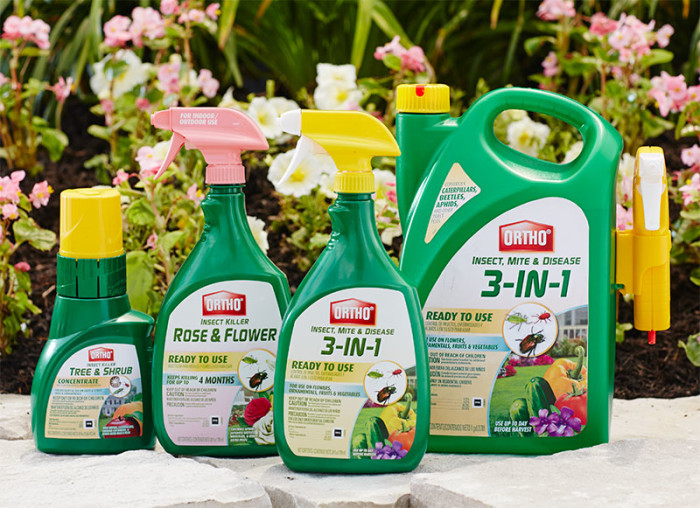We’re doing what we do best – listening to our consumers and making sure our products fit their needs.
Today Ortho announced that they will immediately begin to transition away from the use of neonicotinoid-based pesticides for outdoor use. Beginning this spring, Ortho will be offering additional non-neonic based solutions. The specific ingredients that will be eliminated in 2016-17 include: Imidacloprid, Clothianadin and Dinotefruan. We expect the full transition to be completed by 2021.
“This decision comes after careful consideration of the ongoing dialogue around the range of possible threats to honeybees and other pollinators,” said Tim Martin, general manager of the Ortho brand. “This change does not reflect our opinion on the science, which is still being debated. Rather, as the industry leader, this move reflects our commitment to helping homeowners feel comfortable in knowing that our products are safe for their family and the environment when used as directed.”

The brand also announced a multi-year partnership with the Pollinator Stewardship Council to help educate homeowners on the safe and appropriate use of pesticides. This effort will consist of web and social media communications, as well as in-store messaging, to reach consumers throughout the United States. In addition to these initiatives, our company will reach out to regulators at the federal and state level to encourage label changes that make purchasing and safely using pesticides less confusing for homeowners.
Thanks for the story @WSJ! We’re glad to be doing our part to help our #pollinators https://t.co/BhF5YQ2aca via @WSJ
— Scotts Miracle-Gro (@Scotts_MGro) April 12, 2016
What are Neonics?
Neonics were developed to more directly target unwanted pests with a lowered amount of toxicity for non-target species than an older class of insecticide chemistry called organophosphates could deliver. Neonicotinoids can typically be applied at lower concentrations to achieve effective long-term insect control. Recently, these active ingredients have been under fire for causing the decline in the health of our pollinator population. We’ve been following the conversation and have taken steps to expand our global outdoor portfolio of neonic-alternative products that deliver the effectiveness consumers seek.

